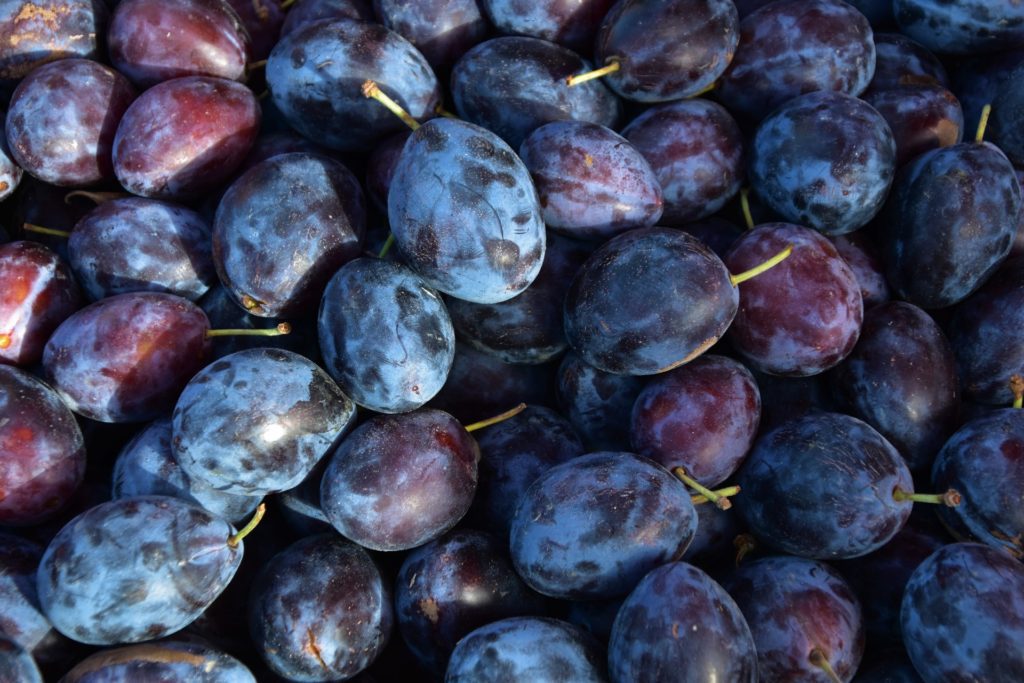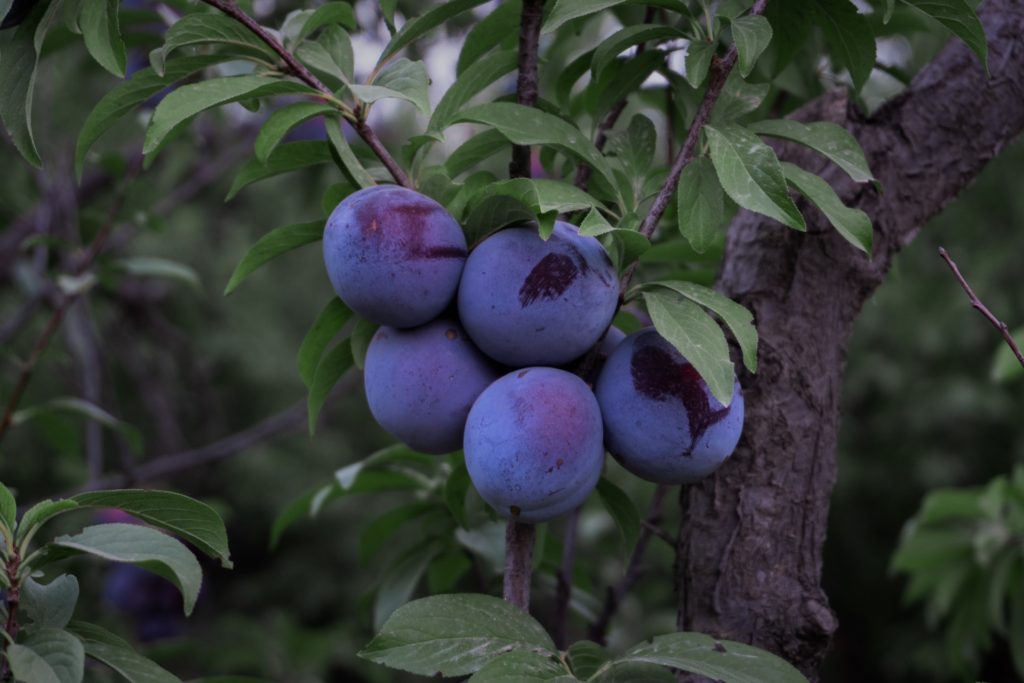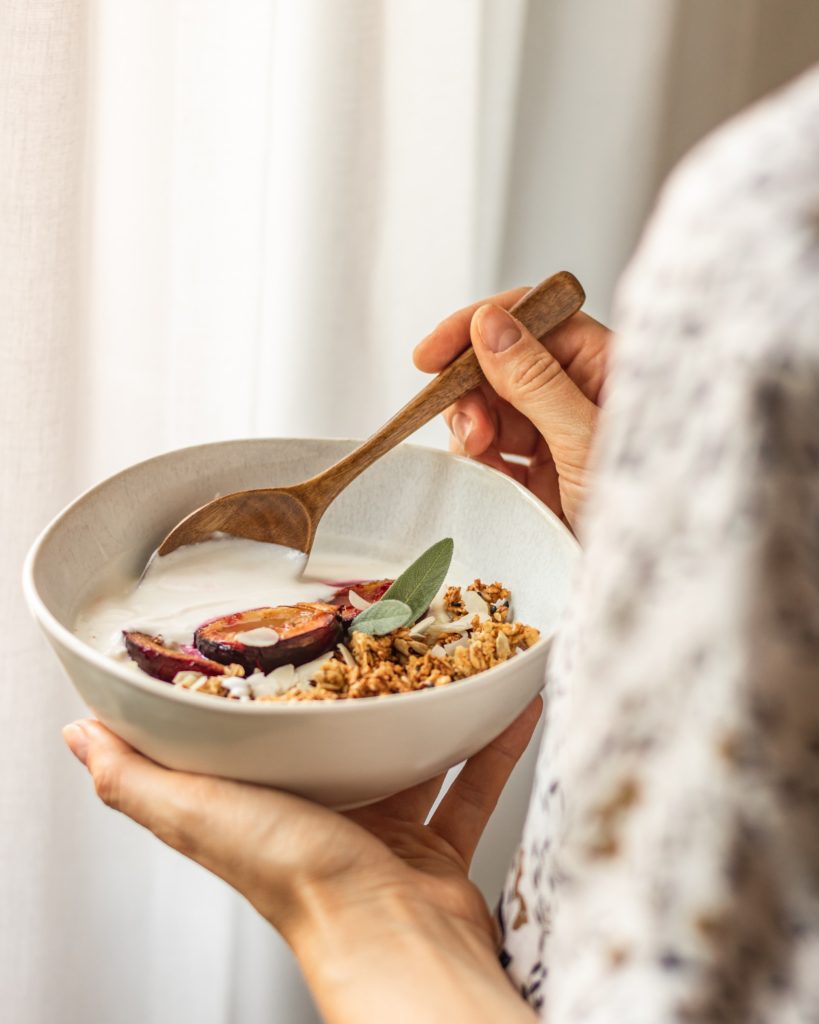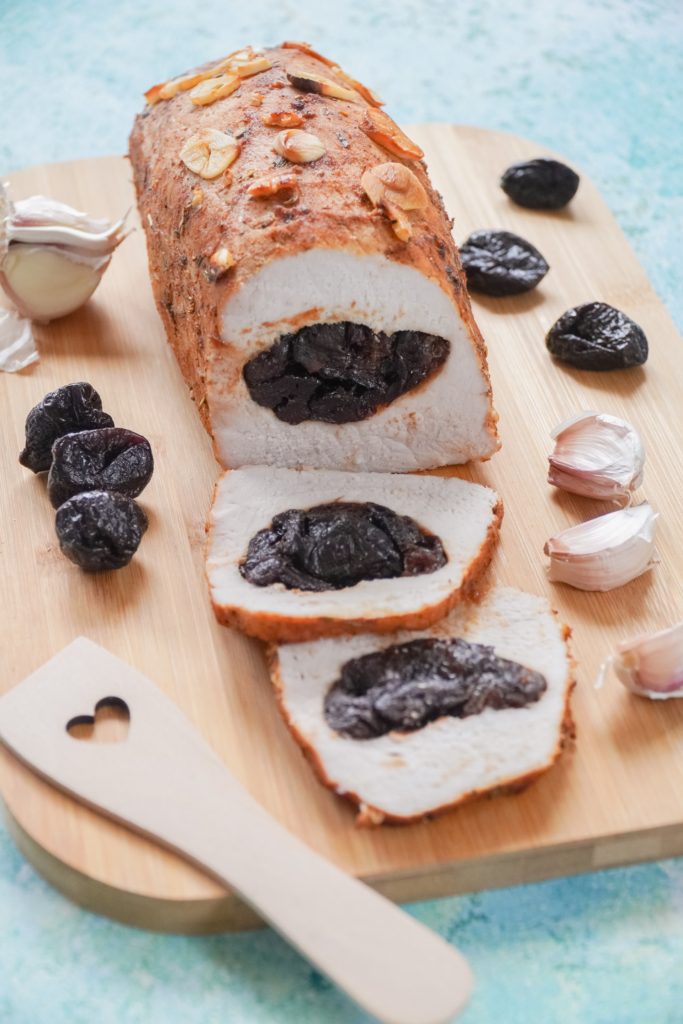Plums; almost everyone has eaten them. But did you know that plums have a lot of health benefits? This is something that many people do not know, but it can certainly be a motivation to include plums in your diet more often.
After we have discussed the health benefits, we will therefore come back to how you can combine plums with your daily diet. We hope you learn some new things about plums that you didn’t know before!
Table of Contents
- What are plums?
- The health benefits of plums
- Nutrients in plums
- Processing plums in meals
- Can you be allergic to plums?
- What should you pay attention to when buying plums?

What are plums?
Plums are fruits that you can eat with or without the peel. Plums fall as fruit under the so-called tree fruits. They have soft flesh behind the peel and a pit on the very inside. The color is usually blue/purple-like, but can also be more red or yellow.
In general, plums taste quite sweet. However, this taste is very dependent on the variant, there are many variants, including the Japanese and European. The fact that there are so many different variants with different tastes ensures that it can be combined with many different recipes.
The health benefits of plums
Now for what you probably came here for! The top 8 health benefits of plums. These substantiate why it is wise to eat plums regularly.
- Lower cholesterol levels : We have 2 types of cholesterol in our body; LDL cholesterol and HDL cholesterol. LDL cholesterol can be seen as the ‘bad’ cholesterol and HDL cholesterol as the ‘good’ cholesterol. Plums significantly lower LDL cholesterol levels. Plums seem to have little influence on HDL cholesterol. The reduction in LDL cholesterol will in turn lead to a reduced risk of cardiovascular disease.
- Contains few calories : Plums contain about 46 kilocalories per 100 grams, which is very little. Due to the volume of the plums, which is very large in relation to the calories, eating plums does lead to a strong reduction in the feeling of hunger. Very suitable if you want to lose weight!
- Rich in antioxidants : You may be familiar with the term antioxidant, which is a substance that is often found in fruits and vegetables. This substance scavenges free radicals in your body. Free radicals are substances that can damage your cells and tissues. Antioxidants therefore counteract this damage and therefore have an anti-inflammatory effect and in the long term reduce the risk of, among other things, cancer and cardiovascular disease.
- Strenghtens bones and muscles : Plums contain magnesium. Magnesium contributes to strengthening the bones as well as maintaining flexible and strong muscles. So a very good mineral! If you want to read more about magnesium you can find it here.
- Strengthening the immune system : Plums contain a lot of vitamin C. First of all, vitamin C has an antioxidant effect, so it protects our cells and tissues. In addition, it provides good resistance to your body and also contributes to wound healing.
- Improve digestion : Plums can improve digestion and also prevent constipation. This is due to the high fiber content of plums. Want to know more about this? Then click here.
- Reduces risk of diabetes : Plums have a low glycemic index. This means that carbohydrates are absorbed into the blood less quickly as glucose. This makes your body better able to control your blood sugar level and the risk of type 2 diabetes is also reduced due to the less exposure to glucose.
- Improves brain health : Plums reduce inflammation in neurological areas in the brain. This is due to the flavonoids that plums contain. This reduction in inflammation can improve the brain’s learning and memory functions.

Nutrients in plums
Per 100 grams plums contain:
- 84,5 grams of water
- 0,6 grams of protein
- 0,2 grams of fat
- 12 grams of carbohydrates (of which 7,6 grams are sugars)
- 1,7 grams of fiber
In addition, plums contain these vitamins and minerals:
- Potassium
- Calcium
- Iron
- Magnesium
- Zinc
- Provitamin A (the body can convert this to vitamin A)
- Vitamins of the B complex
- Vitamin C
- Vitamin E
Processing plums in meals
It is of course very personal in which meals you like to use plums. Give this a try and find out what you like! We will mention 3 meals here that may help you as inspiration.
- Plum cake : If you like baking this is great to try!

- Yogurt with plums and granola : Super easy to make, but super tasty!

- Pork chop with dried plums : The plums give a delicious fresh/sweet twist to the pork chop!

Can you be allergic to plums?
You might not expect it, but you can indeed be allergic to plums. This allergy generally stems from hay fever. With hay fever, you have antibodies in your body against the proteins in pollen. The annoying thing is that the proteins in this pollen are very similar to the proteins that are present in certain fruits and nuts that come from trees (including plums). Your antibodies can then react to this. This then results in complaints such as itching, swelling of the lips/mouth/throat, and nasal complaints such as a lot of sneezing and a runny nose.
Now you may be wondering; what can I do if this bothers me? Quite simply, the proteins that occur in plums (and therefore also those in other fruits and nuts) are sensitive to temperature. This means that they lose their structure at high or low temperatures. In this case, you will no longer experience any complaints. For example, if you use plums in a cake that goes in the oven, you will not suffer from this at all!
What should you pay attention to when buying plums?
When you buy plums, it is most important to pay attention to the degree to which you can press the plums. Plums should be firm, but if you press them lightly they should give a little. Leave prunes if they are either too hard or dented. It is best to buy plums in the months of July, August and September. Around this time it is plum season and the plums are the best in terms of quality.
Lifestyle coach [5+ years of fitness experience]